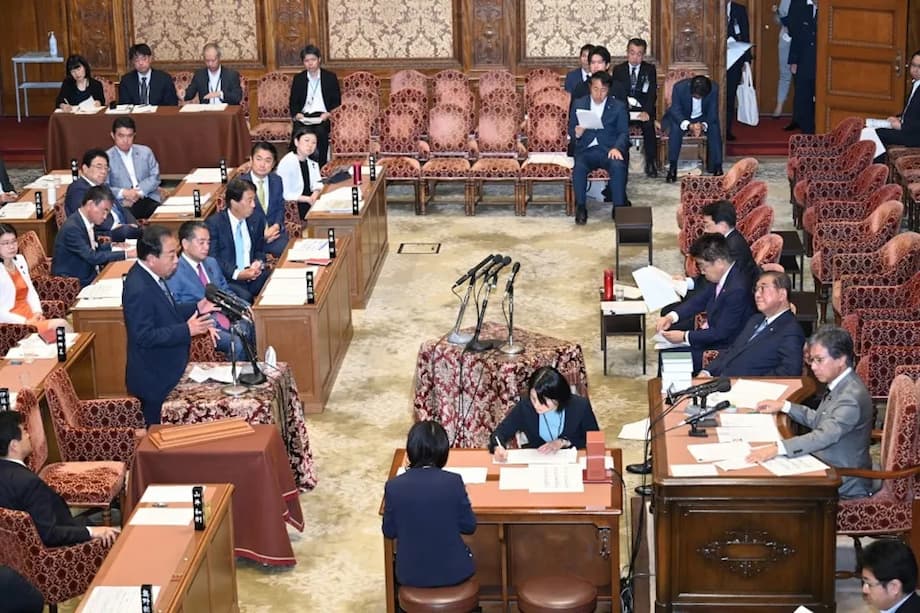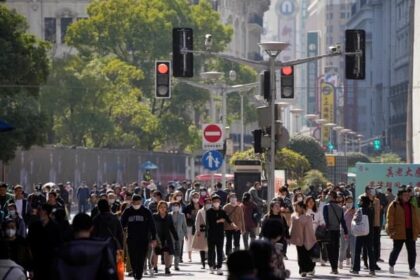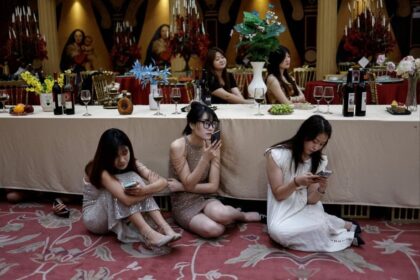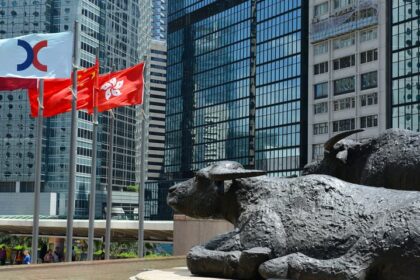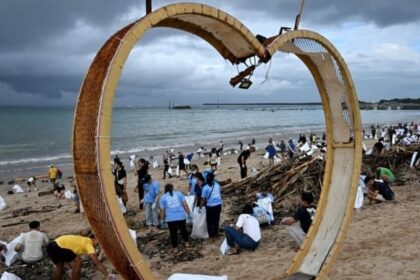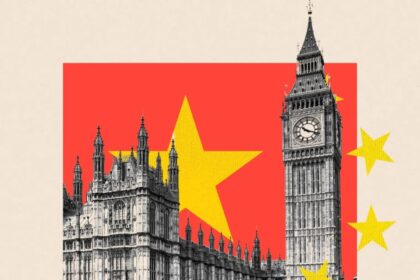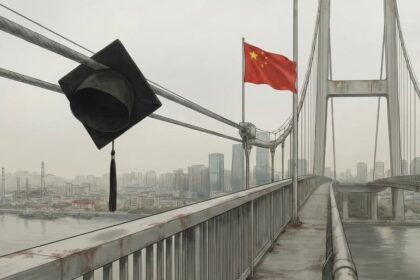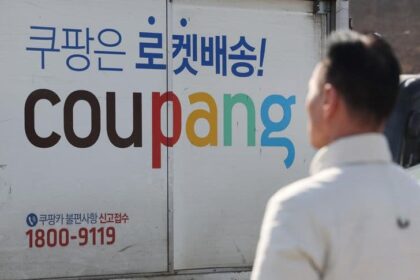Japan’s Ongoing Battle Over Wartime Memory
Japan stands at a crossroads as it marks the eightieth anniversary of the end of World War II. While the country’s political landscape is animated by visible disputes over tax policy, trade, and corruption, a deeper and more consequential struggle simmers beneath the surface: the contest over how Japan remembers its wartime past and what that memory means for its national identity and future. This struggle, long a source of domestic and international tension, has once again come to the fore following the July Upper House election, with Prime Minister Ishiba Shigeru’s reconsideration of an official anniversary statement igniting fierce debate within the ruling Liberal Democratic Party (LDP) and beyond.
- Japan’s Ongoing Battle Over Wartime Memory
- Why Do Anniversary Statements Matter?
- The Political Divide: Reflection vs. Revisionism
- Textbooks, Museums, and the Battle for Young Minds
- Contested Atrocities: Nanjing, Comfort Women, and Forced Labor
- The Role of the Emperor and the Politics of Apology
- International Repercussions: Diplomacy and Regional Tensions
- Popular Culture and the Shaping of National Identity
- Hiroshima, Nagasaki, and the Legacy of Pacifism
- Japan at 80 Years: Reckoning and the Road Ahead
- In Summary
At stake is not only the legacy of Japan’s wartime actions but also the direction of its democracy, its relationships with neighbors, and the values it chooses to uphold in the 21st century.
Why Do Anniversary Statements Matter?
Anniversary statements by Japanese prime ministers have become symbolic battlegrounds for the nation’s reckoning with its wartime history. The tradition began in earnest with the 1995 Murayama Statement, in which then-Prime Minister Tomiichi Murayama expressed deep remorse and offered a clear apology for Japan’s aggression and colonial rule in Asia. This statement set a baseline for official government views and became a touchstone for reconciliation with countries such as China and South Korea, which suffered under Japanese occupation and militarism.
Subsequent leaders have navigated the delicate politics of these statements. Prime Minister Junichiro Koizumi echoed Murayama’s language in 2005, while Prime Minister Shinzo Abe’s 2015 statement attempted to balance acknowledgment of past aggression with a more assertive, and at times revisionist, narrative. Abe’s approach, which avoided repeating key words like “aggression” and “apology,” was seen by some as an attempt to reshape the historical narrative and by others as a necessary step away from what they viewed as excessive self-criticism.
The debate over these statements is not merely semantic. As East Asia Forum notes, the words chosen—or omitted—can have profound diplomatic consequences, influencing Japan’s moral authority and its ability to resolve lingering disputes over territory, compensation, and historical memory.
The Political Divide: Reflection vs. Revisionism
Prime Minister Ishiba Shigeru’s recent suggestion that he might issue a new statement for the eightieth anniversary has exposed deep divisions within the LDP and Japanese society. The party’s right wing, particularly followers of the late Prime Minister Abe Shinzo, argue that Abe’s 2015 statement should be the final word on the matter. They fear that any new statement might reopen old wounds or undermine a narrative that emphasizes national pride and minimizes culpability.
On the other side, Ishiba and his allies advocate for honest reflection on Japan’s aggressive and colonial past. They argue that acknowledging historical wrongs is essential not only for reconciliation with neighbors but also for ensuring that the mistakes of the past are not repeated. Ishiba’s involvement in a study group on former Prime Minister Ishibashi Tanzan, a critic of militarism and nationalism, signals his commitment to a more reflective approach.
This divide is not new. As The New Yorker explains, Abe’s tenure was marked by efforts to revise Japan’s wartime narrative, including pressuring publishers to remove references to atrocities and investigating previous government apologies. Abe’s vision was shaped by a desire to restore national pride and exonerate figures like his grandfather, who was labeled a war criminal after the war. Yet, many Japanese citizens and intellectuals have resisted such revisionism, insisting that the country must confront its past honestly.
The struggle over historical memory is thus a struggle over the nation’s soul: should Japan remember itself primarily as a victim of war and nuclear devastation, or as an aggressor that must atone for its actions?
Textbooks, Museums, and the Battle for Young Minds
The contest over wartime memory is perhaps most visible in the realm of education. Japanese history textbooks have long been a flashpoint, with progressive scholars and activists pushing for greater inclusion of Japan’s wartime atrocities, such as the Nanjing Massacre and the exploitation of “comfort women,” while revisionists seek to minimize or deny these events.
According to the Asia-Pacific Journal, the 1990s saw a wave of textbooks that openly discussed Japanese aggression and atrocities, reflecting a broader trend in academia and public discourse. However, this openness provoked a fierce backlash. Revisionist groups, such as the Japanese Society for History Textbook Reform led by Fujioka Nobukatsu, authored alternative textbooks that downplayed or omitted references to atrocities, arguing that Japan fought a just war to liberate Asia from Western imperialism.
This battle extends to museums and public memorials. Peace museums and exhibitions commemorating both Japanese and non-Japanese victims have proliferated since the late 1980s, while revisionist groups have sought to promote a more nationalistic narrative. The Yasukuni Shrine, which honors Japan’s war dead—including convicted war criminals—remains a potent symbol of this divide, with visits by politicians sparking outrage in China and South Korea.
Grassroots activism and local school boards have played a crucial role in resisting revisionist efforts, ensuring that many students continue to learn about the darker chapters of Japan’s history. As apjjf.org notes, the exposure of crimes such as those committed by Unit 731 (which conducted biological warfare experiments) was facilitated by Japan’s postwar political polarization, with left-wing groups pushing for historical truth as part of broader debates about national identity.
Contested Atrocities: Nanjing, Comfort Women, and Forced Labor
Few issues are as contentious as the memory of specific wartime atrocities. The Nanjing Massacre, in which Japanese troops killed tens of thousands of Chinese civilians in 1937, remains a focal point of dispute. While many Japanese textbooks now acknowledge the massacre, revisionists continue to claim it was fabricated or exaggerated, making reconciliation with China difficult.
The issue of “comfort women”—women, mostly from Korea, who were forced into sexual slavery by the Japanese military—has similarly divided Japanese society and strained relations with South Korea. As The Wall Street Journal and Financial Times have reported, conservative politicians have at times questioned whether the system constituted coercion, while survivors and their advocates demand full acknowledgment and apology.
The controversy extends to the question of forced labor. The 1965 Treaty on Basic Relations between Japan and South Korea was intended to resolve all claims, with Japan providing aid and loans. Yet, as Japan Forward details, disputes persist over whether Korean workers were forcibly mobilized or voluntarily sought employment in Japan. Recent scholarship has challenged some aspects of the forced labor narrative, emphasizing the need for rigorous historical inquiry based on primary sources rather than political motivations.
The Role of the Emperor and the Politics of Apology
The Japanese Imperial Family, particularly Emperor Akihito, has played a subtle but significant role in the politics of wartime memory. Although strictly barred from political utterance, Akihito has stood out against historical revisionism, making gestures of reconciliation and expressing remorse for Japan’s wartime actions. As Asia Society highlights, the emperor’s interventions have sometimes contrasted with the positions of nationalist politicians, providing a moral counterweight in the national debate.
Apologies and statements of remorse are fraught with political risk. As East Asia Forum observes, the effectiveness of such gestures depends on their humility and clarity. Ambiguous or half-hearted apologies can exacerbate tensions, while clear acknowledgment of wrongdoing can pave the way for reconciliation. Yet, the political cost of such admissions remains high, with conservative factions quick to accuse leaders of undermining national pride.
International Repercussions: Diplomacy and Regional Tensions
Japan’s struggle with its wartime past is not only a domestic issue. It has profound implications for the country’s relationships with its neighbors, particularly China and South Korea. Both countries have repeatedly called on Japan to offer full apologies and compensation for wartime atrocities, and have reacted strongly to perceived attempts at revisionism.
Territorial disputes, such as those over the Takeshima/Dokdo islets with South Korea and the Senkaku/Diaoyu Islands with China, are often inflamed by historical grievances. The Yasukuni Shrine controversy and the comfort women issue remain persistent sources of diplomatic friction. As East Asia Forum notes, Japan’s ability to realize the full potential of its relationships with its Northeast Asian neighbors depends on its willingness to address these unresolved issues.
Japan’s wartime actions have also had repercussions beyond Asia. The internment of Japanese Americans during World War II, as detailed by the US National Archives, sparked constitutional and political debate in the United States and led to a belated apology and compensation decades later. This episode serves as a reminder that the legacy of war extends far beyond the battlefield, shaping the lives of civilians and the course of international relations.
Popular Culture and the Shaping of National Identity
The struggle over wartime memory is reflected not only in politics and education but also in popular culture. Japanese films, anime, and literature frequently grapple with themes of war, peace, and national identity. The anime film Patlabor II, for example, uses science fiction and allegory to critique Japan’s postwar pacifism and its ambiguous stance in global affairs. As depauw.edu explains, the film warns against the dangers of sliding from calls for greater international responsibility into fervent nationalism and anti-American sentiment.
Such cultural works both reflect and shape public attitudes, offering space for critical reflection and debate. They serve as reminders that the contest over history is not confined to politicians and scholars but is woven into the fabric of everyday life.
Hiroshima, Nagasaki, and the Legacy of Pacifism
No discussion of Japan’s wartime memory is complete without reference to Hiroshima and Nagasaki, the cities devastated by atomic bombs in August 1945. These tragedies have become central to Japan’s postwar identity as a nation committed to peace and nuclear disarmament. Memorials, peace museums, and annual ceremonies serve as reminders of the horrors of war and the value of pacifism.
Yet, as The New York Times reports, even Hiroshima’s pacifist cause is facing new challenges. Generational change, shifting political winds, and regional security concerns have led some Japanese to question whether the country’s pacifist constitution remains adequate in a changing world. The debate over how to remember Hiroshima and Nagasaki is thus intertwined with broader questions about Japan’s future role in international affairs.
Japan at 80 Years: Reckoning and the Road Ahead
As Japan marks the eightieth anniversary of the end of World War II, the country finds itself at a moment of reckoning. Memorials in Hiroshima and Nagasaki, ongoing demands for apologies, the emperor’s visits to former battle sites, and debates over the pacifist constitution all contribute to a national conversation about the lessons of the past and the path forward.
The central question remains: how should Japan remember its wartime past, and what does that memory mean for its identity and its relationships with the world? The answer is far from settled. As Japan Today observes, the discussion continues on how countries should remember difficult histories and what steps should be taken to address unresolved issues from the past.
In Summary
- Japan’s political landscape is deeply shaped by ongoing debates over how to remember and interpret its wartime history.
- Anniversary statements by prime ministers serve as symbolic battlegrounds for these debates, with language choices carrying significant diplomatic and moral weight.
- The divide between reflection and revisionism is evident in politics, education, and popular culture, with conservative factions seeking to promote national pride and minimize culpability, while others advocate for honest acknowledgment of past wrongs.
- Controversies over specific atrocities—such as the Nanjing Massacre, comfort women, and forced labor—remain unresolved and continue to strain relations with China and South Korea.
- The Japanese Imperial Family, especially Emperor Akihito, has played a subtle but important role in promoting reconciliation and resisting revisionism.
- Japan’s wartime legacy has international repercussions, affecting its diplomacy and relationships with neighbors and the United States.
- Popular culture and public memorials, especially in Hiroshima and Nagasaki, reflect and shape the ongoing struggle over national identity and the meaning of pacifism.
- As Japan commemorates 80 years since the end of World War II, the nation faces a critical choice: whether to confront its past with humility and honesty, or to retreat into revisionism and denial.


